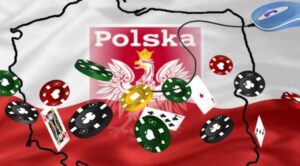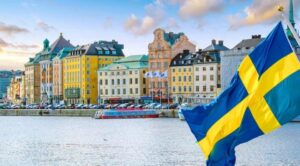Key Moments:
- Romanian legislators have introduced a draft law to closely align gambling operations with the tourism sector in 56 nationally recognized resort towns.
- The proposal highlights economic benefits such as job creation, increased VAT revenue, and tax incentives for local communities oriented toward tourism.
- Questions remain regarding social protections and effective regulation, particularly in managing gambling-related risks among visitors and local populations.
Legislative Push to Link Gambling and Tourism
Romania’s lawmakers are considering a new approach that positions gambling as a catalyst within the nation’s tourism framework. Under a draft law advanced by 37 members of the Alliance for the Union of Romanians (AUR), the relationship between gaming operations and hospitality is set to undergo a transformation. If enacted, the legislation would synchronize gambling licenses with national tourism strategies, specifically targeting Romania’s 56 officially designated tourist resorts.
Proposed Resort-Centric Model
The central idea of the initiative is to establish integrated leisure hubs where entertainment, hospitality, and gaming thrive together. Lawmakers argue that this connection could stimulate investment in resorts, driving growth in hotels, restaurants, conference venues, and cultural sites – all geared to enhance local economies.
Concentrating licensed gambling activities in tourist-centric areas, proponents say, would result in higher average visitor spending, increased lengths of stay, and overall economic uplift for participating communities. The draft law details anticipated outcomes such as more employment opportunities, increased value-added tax (VAT) collections, and larger local tax contributions. It further suggests a mechanism to redistribute gambling tax revenue toward communities with strong tourism profiles. Preferential tax conditions could be extended to designated resorts or zones focused on integrated entertainment.
| Key Features | Description |
|---|---|
| Target Areas | 56 official tourist resorts |
| Expected Benefits | Job creation, increased VAT, local tax incentives |
| Regulatory Changes | Alignment of licenses with tourism strategy, longer-term licensing in resorts |
Regulatory and Social Responsibility Challenges
While current laws prohibit gaming venues in towns with under 15,000 residents, tourist resorts already allow limited three-month operating licenses for gambling businesses. The latest proposal aims to extend and formalize these allowances, offering more consistent regulatory opportunities for operators in tourist-driven areas.
However, this interconnected approach brings up new concerns about oversight and player protection. The proposal indicates requirements for staff training and monitoring systems to recognize gambling-related risks in these resort venues, yet offers limited details on practical implementation, especially when it comes to foreign guests.
The lack of a common European standard on problem gambling further complicates enforcement, even though voluntary guidelines on harm markers have been recognized recently by the European Committee for Standardisation.
Addressing Social Impact
Social considerations form another part of the proposal. Supporters suggest that grouping casinos and betting halls within resort areas could restrict access for financially vulnerable populations in smaller towns. Nevertheless, the broad availability of online gambling undermines how effective such location-based limitations could be in reality.
Although the draft legislation refers to reducing the “indirect social costs” tied to compulsive gambling, it does not lay out a clear, actionable road map for prevention, enforcement, or treatment. Despite this, the inclusion of such language points to a wider shift in policy discussions – expanding beyond taxation and advertising toward public health and corporate responsibility.
European Trends and the Path Forward
Romania’s draft law represents a growing movement to view gambling through the lens of national development and tourism, rather than as an isolated revenue generator. By encouraging synergy between casinos and resort economies, the country’s approach draws inspiration from similar models in Southern Europe.
The proposal asserts its compliance with all relevant European Union economic guidelines and is slated for parliamentary consideration. A successful passage could signal a new chapter in Romanian gaming and tourism regulation, building stronger connections between the two sectors while balancing ambitions for development with the need for effective controls.
Ultimately, as discussions progress, the challenge for policymakers remains clear: aligning growth, inclusivity, and ethical standards in Romania’s evolving tourism-gaming landscape.
- Author


